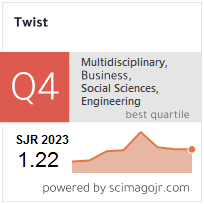Translanguaging and its Effects on the Teaching- Learning Processes in Multilingual Classrooms in Zimbabwe
Keywords:
Translanguaging, Codes-witching, Multilingualism, Indigenous languages, Pedagogic strategyAbstract
The study examined the impact of translanguaging pedagogy in multilingual classroom environments in Matabeleland South province in Zimbabwe where Kalanga, IsiNdebele and ChiShona co-exist as indigenous languages. The study was specifically conducted in multilingual Mangwe district where translanguaging is inevitable as learners possess diversified mother tongues in the classroom. A qualitative design was employed while the sample that was purposefully chosen comprised four primary teachers, four IsiNdebele secondary teachers, one primary Teacher-in-Charge (TIC), one secondary Head of Department (HOD) and thirty six Form One learners. The sample was relevant and appropriate because it enabled the study to obtain data on the impact of translanguaging pedagogy employed by teachers and learners in multilingual classroom situations. The study was anchored on Postmodernism theory because it provides an appropriate theoretical framework for issues relates to cultural and language developments and diversity in multilingual societies. Key research instruments employed were interviews and observation guides, which were appropriate for gathering data from the participants. Findings from this study reflect that translanguaging is an indispensable strategy in the teaching- learning processes in multilingual communities, where languages are inherently in contact. However, despite its few negative effects, the study emphatically concluded that translanguaging is an effective pedagogy in multilingual classrooms where learners from different backgrounds bring with them diverse mother tongues. Hence, it is recommended that language teachers employ translanguaging pedagogy, as it is applicable to teaching of various languages, to equip learners with skills for navigating multilingual situations.
Downloads
Downloads
Published
Issue
Section
License
Copyright (c) 2025 TWIST

This work is licensed under a Creative Commons Attribution-NonCommercial-ShareAlike 4.0 International License.











